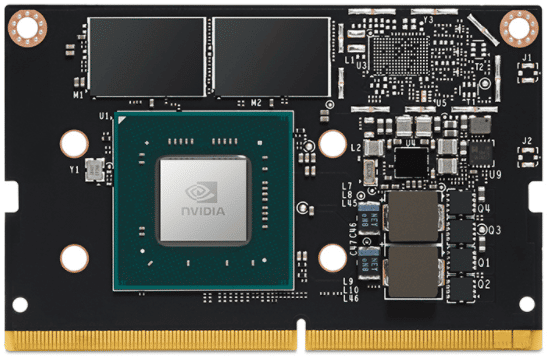It’s been a long time since we announced the Turing Pi V2, but finally, we are ready to reveal all the details of the new cluster board. But first, we want to thank you all for your patience and for every feedback you gave us along the way. We appreciate the community’s input and support.
During our development journey, we have made some changes to the initially announced specifications. We would love to add many things to the V2, but the goal to make the board budget-friendly brought us down to the ground many times.
Specs:
- Mini ITX standard
- 4x Nodes
- Managed Switch, VLAN
- HDMI
- 2x Mini PCIe Gen2
- 2x SATA III 6 Gbps
- 2x 1 Gbps Ethernet
- 4x USB 3.0 (2x Front / 2x Back)
- GPIO 40-pin (RPi compatible)
- 24-pin ATX power
Removed:
- 4x Node Fan connector
- 3x GPIO 40-pin
- Audio-out 3.5mm
Added:
- Nvidia Jetson Support
- Board Management Controller with remote access
- System Fan connector
Welcome on board, Nvidia Jetson
Since the beginning of the Turing Pi project, we have envisioned that compact clusters should handle general compute and machine learning tasks at the edge. This would allow extending use cases by bringing machine learning to the edge. We are very excited to announce that we’ve implemented an option to combine different types of compute modules on the board. The Turing Pi V2 now supports Raspberry Pi CM4, and Nvidia Jetson compute modules. Now you will be able to build heterogeneous nodes with various combinations of modules. Every cluster’s node can run either Raspberry Pi CM4 or Nvidia Jetson compute module.
TPI CM4 adapter | Nvidia Jetson |
Turing Pi V2 extensibility
- Compute modules
- Storages
- Extensible boards
- BMC firmware
While working on the V2, we have been focused on bringing extensibility, modularity, and the possibility of upgrading clusters with new compute modules in the future. As a result, we believe that the Turing Pi V2 brings enormous capabilities to the edge computing space.
With the Turing Pi V2, you are not only able to use different compute modules but expect next generations of Raspberry Pi CMs to be compatible as well. We will reveal more details on this in the next article.
| Vendor | Model | CPU | Cores | RAM, GB |
| Raspberry Pi | CM4 | Broadcom BCM2711 | 4 | 2, 4, 8 |
| Nvidia | Jetson Nano | Quad-core ARM Cortex-A57 MPCore | 4 | 2, 4 |
| Nvidia | Jetson TX2 NX | Dual-core NVIDIA Denver 2 Quad-core ARM A57 Complex | 6 | 4 |
| Nvidia | Jetson Xavier NX | NVIDIA Carmel ARM®v8.2 | 6 | 8 |
| Turing Pi | TCM | TBA | TBA | TBA |
The Turing Pi V2 also allows you to connect external storage and various extension boards like the 5G modem, LoRaWAN gateway, Zigbee, and more.
Baseboard Management Controller (BMC)
In the new version of the Turing Pi, we continued to expand the idea of the Cluster Management Bus and added a microcontroller unit (MCU). The board management controller and its network work autonomously relative to the compute nodes, making the management plane independent from the control plane and the data plane.
Management plane tasks include board diagnostics, watchdog and alerting, power management, remote cluster management, OS flashing, etc.
Firmware
The Turing Pi V2 clusters will include firmware to control cluster operations. The firmware provides over-the-air updates (OTA), remote cluster management, including serial console over LAN, and flashing OS images remotely. The combination of these functions allows to bootstrap bare-metal cluster to ‘kubeconfig’ and recover it remotely.
Management Switch
The Turing Pi V2 board has a 7-port switch of which:
- 4x 1-gigabit ports are allocated one for each computing node
- 2x external 1-gigabit ports, and a 100-megabit port are allocated for cluster management plane
Quick specs:
- 1 Gbps 8-port management switch
- IEEE802.1Q VLAN support the full range of 4096 VLAN IDs
Power supply unit (PSU)
The V2 has a standard ATX 24-pin connector to choose between standard ATX / ITX and external power supplies. Therefore, the power consumption of the 16 cores, 32 GB RAM cluster shouldn’t be more than 80W. This energy efficiency allows fanless builds and compact picoPSU with wide input 6-24V DC for AC-DC adapters along with the car, solar, or battery power supplies.
 |  |
Roadmap
Right now, we are finalizing the board development. At the moment of writing this article, we are waiting to receive the final prototypes from the factory. If everything goes as planned, we will launch preorders this fall with estimated delivery in Q1 2022.
We also plan to extend our team to help us with firmware development, CLI development, hardware design, project management, and community building. If you think you fit into one of these categories, please feel free to contact us.
Moreover, we are looking to launch our own compute modules next year.
Release date and price
We will announce the exact launch date and price in the coming weeks. Make sure you subscribe below to be the first to know. Though, if you want to help us to make some decisions and improve the V2, please fill this anonymous form: https://bit.ly/3jd94Bt
We appreciate your input!
